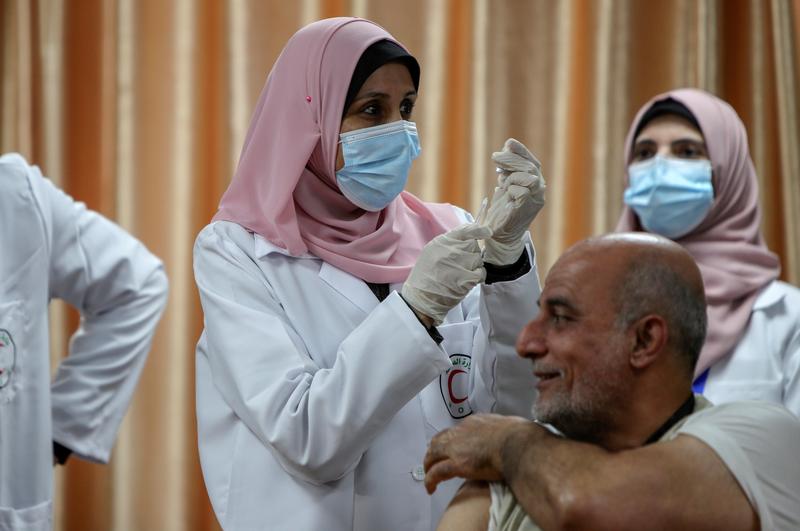
Amid the anti-Covid drive under way in the country, local research has confirmed that the current vaccines have some efficacy against the UK variant — considered more transmissible than the original Wuhan one — but do not provide complete immunity, cautioning citizens to continue adhering to the SOPs.
Pakistan on Saturday recorded at least 3,876 confirmed cases of Covid-19 — the highest in eight months — as the third wave of the pandemic continued to sweep across the country. The country also recorded at least 42 fatalities from the virus in the last 24 hours. A clinical investigation, published on March 11 in ‘Journal of Medical Virology’, showed that the UK variant, SARS-CoV-2/B117, is spreading fast in Pakistan and variably reacting against the immunity gained by recovered persons from the previous infection in the country and across the globe.
The Dow University of Health Sciences (DUHS) scholars’ team, led by Dr Mushtaq Hussain and comprising Sanya Shabbir, Anusha Amanullah, Fozia Raza, Muhammad Janees Imdad and Sahar Zahid, compared the UK variant with the Chinese origin one and closely inspected both strains for their structural, pathogenic and immunological perspectives. The team revealed that both these strains of viruses are binding with the human cells with the same intensity through their spike protein. However, there are subtle “differences in the spike proteins of both these strains of SARS-CoV-2, which can make the UK variant escape the antibodies generated against the original strain”.
“Immunity is our inner defence system which develops certain agents — dubbed as antibodies — against diseases during our whole life. The number of antibodies increases as we are exposed to more and more bacterial viruses and other pathogens and sit in the blood serum,” the team said in its findings. It added that in over a period of more than 15 months, the SARS-CoV-2 virus changed a lot by jumping from one group of people to another.
Also read Collective responsibility to comply with Covid SOPs: SAPM on health
The researchers identified at least 29 major changes between SARSCoV-2 Wuhan and SARS-CoV-2 B117 versions, saying further probe is needed in this regard. However, they said that any patient infected with the Wuhan strain of SARSCoV-2 and developed antibodies against it, “he or she is still vulnerable to the new UK variant”. The B117 variant has caused a noticeable surge in the Covid19 infections in the UK from November 2020 to January after strict lockdown was revoked in many regions. The study stated that Covid-19 cases have sharply increased in the last two weeks in Pakistan, prompting government officials to declare it the third wave of the virus.
It said that B117 seemed to be the reason behind the sudden rise as many reported cases from Punjab are because of this variant strain of the SARS-CoV-2, adding that it may be escaping the immunity developed against the original strain but may also be relatively more pathogenic. Dow researchers observed major changes in spike protein and another protein called “orf8”. They suggested that orf8 gene of the B117 strain has changed to the extent that it may be forming two proteins. “The small protein emerges out of the cell while the big one remains in the cell.”
In 2003, the phenomenon was observed in a rather more deadly wave of SARS-CoV, where the virus got two proteins from orf8 gene. “The current Covid-19 vaccines are effective against the Wuhan strain of SARS-CoV-2 but relatively less against SARS-CoV-2 B117,” Dr Hussain added.
1729662874-0/One-Direction-(1)1729662874-0-405x300.webp)


1722421515-0/BeFunky-collage-(19)1722421515-0-165x106.webp)



1732080054-1/Copy-of-Untitled-(48)1732080054-1-270x192.webp)









COMMENTS
Comments are moderated and generally will be posted if they are on-topic and not abusive.
For more information, please see our Comments FAQ